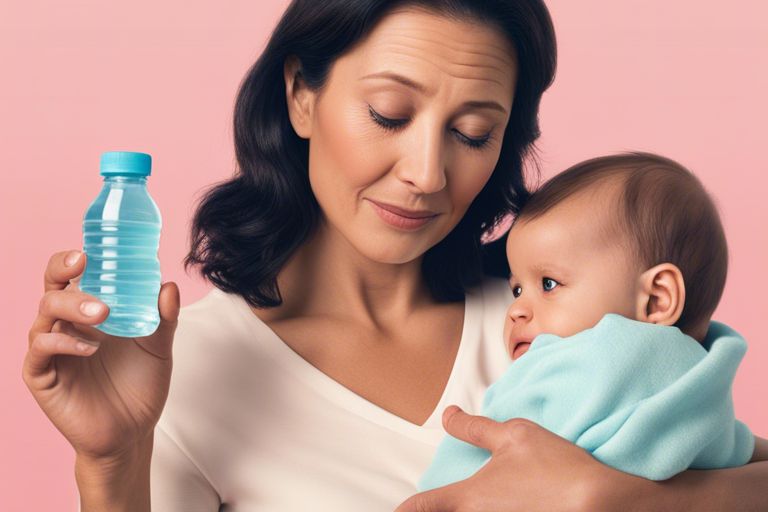tips, tricks and guides for parenthood
Avoidance is key when it comes to spotting the signs of dehydration in babies and ensuring their well-being. Dehydration can be particularly dangerous for little ones, leading to serious health issues if not addressed promptly. In this guide, we will highlight the important signs to look out for and provide crucial tips on how to prevent dehydration in babies. By staying vigilant and following our imperative advice, you can help keep your baby happy, healthy, and well-hydrated.
Clearly, the physical indicators of dehydration in babies are crucial to be aware of. You should watch out for dry lips, sunken eyes, and a lack of tears when crying. Additionally, decreased urine output and a sunken soft spot on the baby's head are also signs to look out for.
Babies may exhibit behavioural clues that suggest dehydration. Look out for irritability, lethargy, and excessive sleepiness. If your baby seems unusually fussy or less active than usual, it could be a sign of dehydration. Pay close attention to weakness and dizziness as well.
A baby's behaviour can tell you a lot about their hydration levels. Remember to seek medical attention if you notice any severe or persistent signs of dehydration. It's always better to be cautious and get your baby checked by a healthcare professional to ensure their well-being.

If you want to understand what leads to dehydration in babies, there are several factors to consider:
Any caregiver should be aware of these factors to prevent dehydration in babies. For more information, you can check out this helpful Signs of Dehydration in Babies: Remedies and When to ...
Babies can become dehydrated due to common illnesses and conditions such as stomach bugs or infections. It's crucial to monitor their fluid intake and look out for signs of dehydration.
Now, when it comes to environmental and lifestyle factors, caregivers need to be mindful of the following:
For instance, exposure to very hot weather or being in a room with a high temperature can lead to quicker fluid loss in babies. Recognising these factors and taking appropriate action is crucial in ensuring a baby stays well hydrated.
Now, ensuring adequate fluid intake is crucial to prevent dehydration in babies. Here are some tips to help you keep your little one well-hydrated:
Though, always consult your healthcare provider for specific guidelines on fluid intake for your baby.
Clearly, when to seek medical attention for dehydration in babies is crucial. If you notice any of the following signs, seek urgent medical help:
Seek immediate medical attention if your baby has sunken eyes, refuses to drink, has no tears when crying, or shows lethargy and irritability.
Summing up, recognising the signs of dehydration in babies is crucial for their well-being. By ensuring they are well-hydrated with frequent milk feeds, offering water in hot weather, and seeking medical advice if they show symptoms of dehydration, parents can help prevent this common issue. Remember to monitor nappy output, look out for dry lips and mouth, and keep an eye on their overall well-being. With proper care and attention to hydration, babies can stay healthy and happy. Stay vigilant, stay informed, and keep your little one hydrated!
A: Signs of dehydration in babies include dry mouth, few or no tears when crying, sunken eyes, a sunken soft spot on the baby's head, and fewer wet nappies than usual.
A: You can tell if your baby is dehydrated by observing their behaviour and physical signs such as being irritable, lethargic, and having a dry mouth and tongue.
A: To prevent dehydration in your baby, ensure they are adequately hydrated by offering breast milk or formula regularly, especially in hot weather. Monitor their nappy output and look out for signs of dehydration.
A: You should seek medical help for your dehydrated baby if they show severe symptoms such as sunken fontanelle, rapid heartbeat, no wet nappies for 8-12 hours, or extreme lethargy.
A: If you suspect that your baby is dehydrated, offer small amounts of oral rehydration solution or breast milk/formula frequently, and seek advice from a healthcare professional for further guidance.